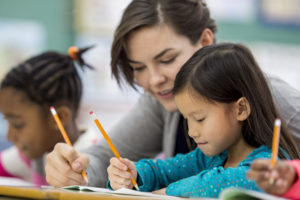Student Assessment
 Assessment is ongoing and occurs at every level of the continuum. Student assessment begins with the curriculum. How can a student meet or approximate the learning outcomes of the provincial curricula? What are the best instructional practices, adaptations, assessment tools, materials and resources required to support a student in their learning?
Assessment is ongoing and occurs at every level of the continuum. Student assessment begins with the curriculum. How can a student meet or approximate the learning outcomes of the provincial curricula? What are the best instructional practices, adaptations, assessment tools, materials and resources required to support a student in their learning?
Appropriate assessment should provide answers to these questions. Assessment may range from informal, such as classroom observations and reviewing work samples, to more formal written or oral tests with clear assessment criteria. To determine the educational programming needs of each student, assessment begins with both formal and informal components by the classroom teacher. It may expand beyond the classroom to school based assessments from the Learning Support Teacher or School Counsellor.
Specialized student assessment may be provided by the Student Services clinical team. A principal will refer a student for a specialized assessment:
- if the student’s teacher, learning support teacher, or school counsellor are unable to determine the factors contributing to the student’s difficulty in meeting curricular outcomes; or,
- if differentiating instruction, adaptations to the learning process or product, alternatives to exhibit the learning, or accommodations to the environment are insufficient in assisting the student in meeting or approximating the curricula outcomes.
Specialized assessment from the divisional clinicians, e.g., speech language pathologists, occupational therapists, school psychologist, add another layer of assessment and recommendations for appropriate educational programming. The purpose of any assessment is to gain better understanding of the learning needs of a student in order to program appropriately for that student.
In the school setting, the primary principles of assessment are: Assessment for Learning, which provides data that facilitates the development of differentiated learning strategies, recognizing that students learn and apply their learning in diverse ways. Assessment as Learning focuses on the development of each student’s capacity to monitor and control their learning. Assessment of Learning involves summative evaluation of the information and skills that a student has acquired with respect to specific curricular outcomes or the student specific outcomes of a Student Specific Plan (SSP).
